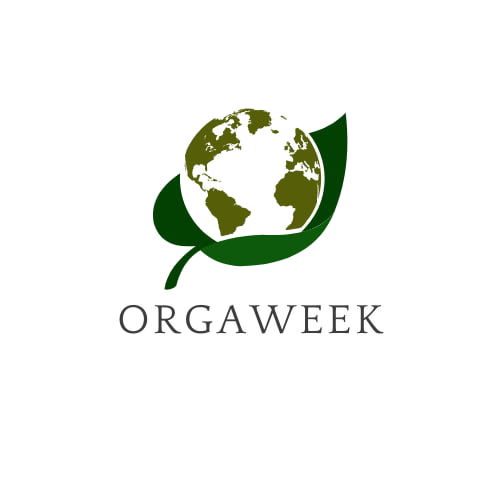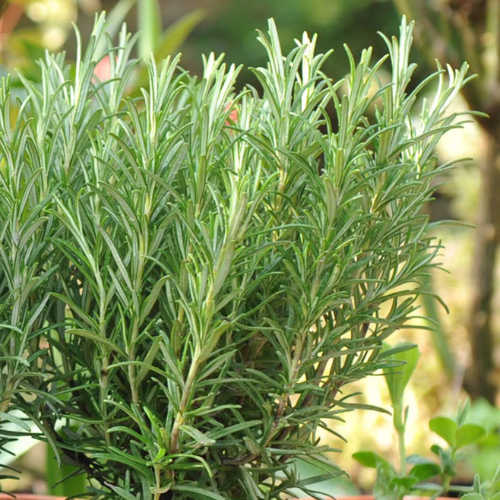Rosemary (Rosmarinus officinalis)
- Cognitive Enhancer: Traditionally celebrated for enhancing memory and vitality and supporting cognitive function.
- Aromatic Profile: Features a distinct pungent, pine-like, woody, and peppery aroma, popular in culinary and cosmetic applications.
- Potent Antioxidant: Valued for its strong antioxidant, anti-inflammatory, and antimicrobial properties, mainly found in its leaves.
- Multi-Use Formats: Available as Herbal Distillate (Hydrosol), Herbal Infusion (Tea), Herbal Extract, and Dried Leaves.
- Sustainable Sourcing: Sustainably grown and harvested at peak maturity to preserve its rich profile of active compounds.
Review / Detailed Description
Rosemary (Rosmarinus officinalis): The Herb of Remembrance and Vitality
Rosemary, or Rosmarinus officinalis, is a fragrant, evergreen shrub belonging to the Lamiaceae family. Revered since ancient times, it has been a cornerstone of Mediterranean cuisine and traditional medicine. Its needle-like leaves are particularly celebrated for their power to enhance memory, boost vitality, and improve cognitive function.
The leaves of the rosemary plant are valued for their potent antioxidant, anti-inflammatory, and antimicrobial properties. Rosemary is extensively used to create herbal teas, essential oils, distillates (hydrosols), extracts, and culinary seasonings. Its invigorating and distinctly pungent, pine-like, woody, and peppery aroma makes it an ideal addition to products that aim to boost circulation, support hair health, and generally preserve food naturally.
At Organikweek, our rosemary is sustainably grown and carefully harvested at peak maturity. The leaves are meticulously dried and processed to protect their rich profile of active medicinal and culinary qualities, ensuring premium quality for the pharmaceutical, cosmetic, food, and wellness industries. Our products comply with EU herbal safety regulations and international standards (ISO, organic certifications), undergoing rigorous testing and purity checks prior to export.
Packaging and Availability: We offer flexible packaging to accommodate various customer needs. Bulk options include ∼20 kg PP Bags with food-grade liners for dried rosemary leaves and ∼20−50 L HDPE Drums for distillates and extracts. Retail consumers can purchase individually packed Herbal Tea Bags, ∼40 g or ∼80 g Eco-friendly Sachets or Glass Jars of dried leaves, ∼100 ml or ∼500 ml Plastic Bottles of Herbal Distillate (Hydrosol), and convenient ∼30 ml Plastic Dropper Bottles of Herbal Extracts.
Specifications Table
| Feature | Detail |
| Form | Herbal Distillate (Hydrosol), Herbal Infusion (Tea), Herbal Extract, Dried Leaves |
| Aroma & Taste | Pungent, Pine-like, Woody, Peppery |
| Applications | Culinary Seasoning, Food Preservation, Aromatherapy, Cosmetics (Hair & Skin Care), Herbal Teas, Cognitive Support Remedies |
| Shelf Life | 18−24 months (depending on storage) |
| Availability | Bulk & Retail |
| Storage Conditions | Store at 15−20∘C in a cool, dry, and airtight environment, protected from direct sunlight and moisture. |
| Export Status | Complies with EU herbal safety and international standards. Undergoes microbial testing and purity checks. |
Nutritional Values per 100g:
| Component | Value |
| Energy | 331 Kcal |
| Protein | 4.8 g |
| Carbohydrates | 64 g |
| Dietary Fiber | 42.6 g |
| Essential Oils | 1−2.5% |
| Active Compounds | Rosmarinic Acid, Carnosic Acid, Camphor |
| Vitamin A | 2924 IU |
| Vitamin C | 61.2 mg |
| Calcium | 1280 mg |
| Magnesium | 220 mg |
| Potassium | 955 mg |
| Iron | 29.2 mg |
Customer Reviews
Reviews
Clear filtersThere are no reviews yet.
Online Sports Nutrition and Natural Dietetics.
Chances are there wasn't collaboration, communication, and checkpoints, there wasn't a process agreed upon or specified with the granularity required. It's content strategy gone awry right from the start. Forswearing the use of Lorem Ipsum wouldn't have helped, won't help now. It's like saying you're a bad designer, use less bold text, don't use italics in every other paragraph. True enough, but that's not all that it takes to get things back on track.
The villagers are out there with a vengeance to get that Frankenstein
You made all the required mock ups for commissioned layout, got all the approvals, built a tested code base or had them built, you decided on a content management system, got a license for it or adapted:
- The toppings you may chose for that TV dinner pizza slice when you forgot to shop for foods, the paint you may slap on your face to impress the new boss is your business.
- But what about your daily bread? Design comps, layouts, wireframes—will your clients accept that you go about things the facile way?
- Authorities in our business will tell in no uncertain terms that Lorem Ipsum is that huge, huge no no to forswear forever.
- Not so fast, I'd say, there are some redeeming factors in favor of greeking text, as its use is merely the symptom of a worse problem to take into consideration.
- Websites in professional use templating systems.
- Commercial publishing platforms and content management systems ensure that you can show different text, different data using the same template.
- When it's about controlling hundreds of articles, product pages for web shops, or user profiles in social networks, all of them potentially with different sizes, formats, rules for differing elements things can break, designs agreed upon can have unintended consequences and look much different than expected.
This is quite a problem to solve, but just doing without greeking text won't fix it. Using test items of real content and data in designs will help, but there's no guarantee that every oddity will be found and corrected. Do you want to be sure? Then a prototype or beta site with real content published from the real CMS is needed—but you’re not going that far until you go through an initial design cycle.





Reviews
Clear filtersThere are no reviews yet.